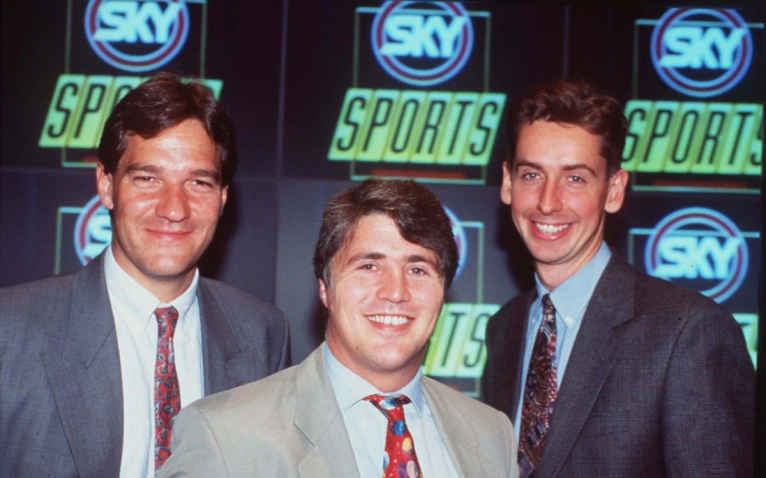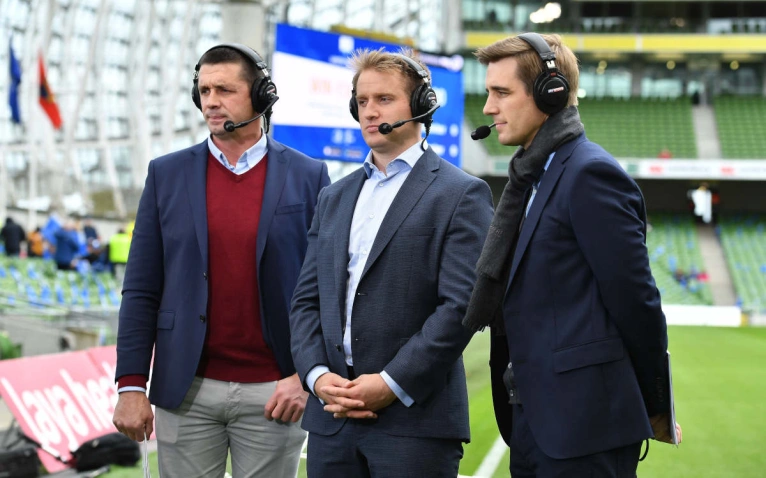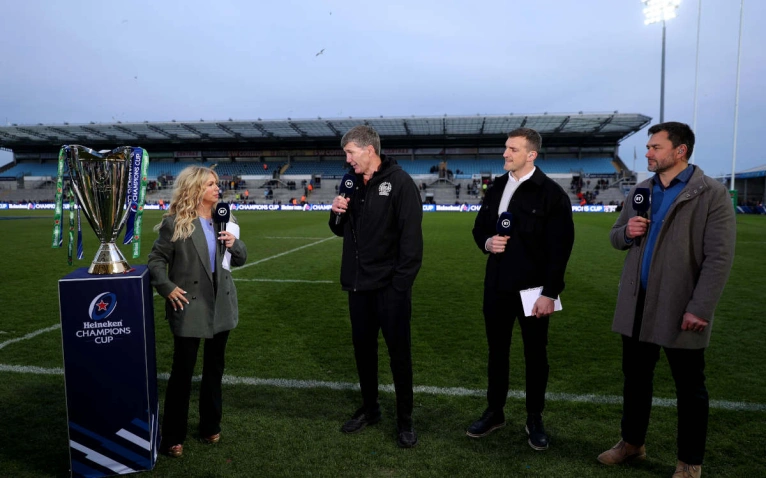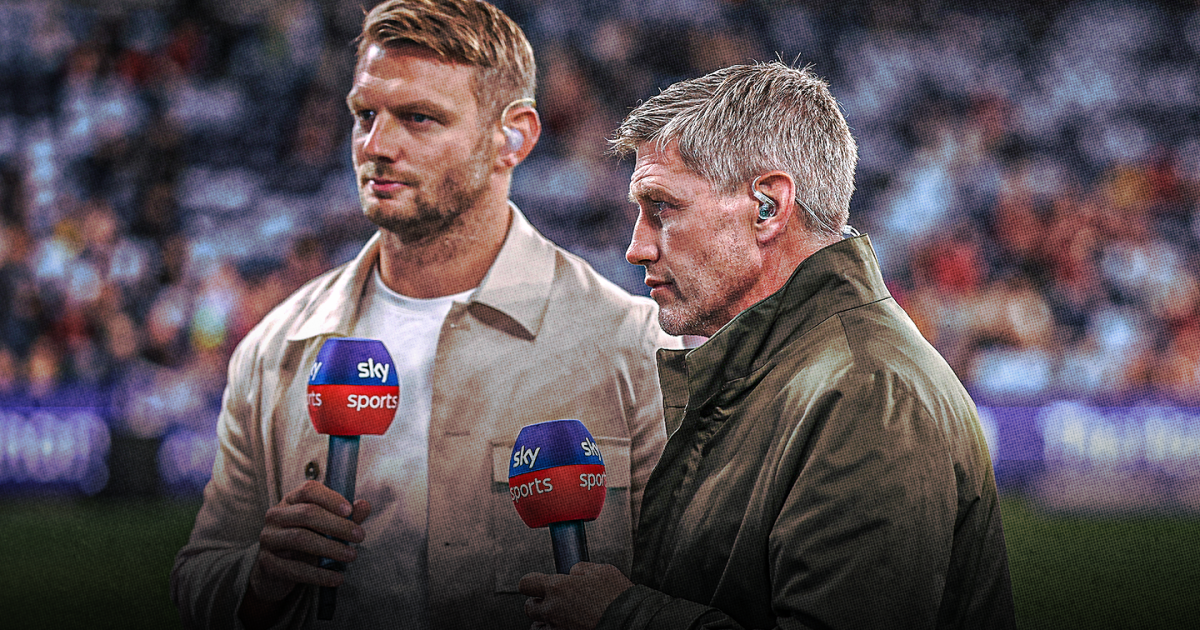Rugby changes. At warp speed. It changes faster than Superman after three double espresso’s and a couple of Adderall – if local chemists stock that in Metropolis. Just look at Australia. Twelve weeks ago, the sport had largely written off their chances of competing with the British & Irish Lions. Twleve weeks hence, they took the Lions all the way before annihilating the Springboks at Ellis Park.
Newcastle Red Bulls (formerly Falcons) are another great example of the rapidity of change in rugby. Four months ago, rugby’s vultures were circling the Falcons, looking for which wing to rip off the carrion. Now, and wonderfully so for their supporters and staff, they’re buying more swag than a 13-year-old who has just discovered his parents’ Amazon password.
But, there’s another aspect of the game that regularly changes, yet receives very little attention when it does – and that’s rugby punditry. Both Dan Biggar and Ronan O’Gara were game changing as part of Sky’s Lions’ coverage this summer and seemed to draw a line in the sand from what we now expect from rugby pundits.
But before we go much further, we must be clear what we’re talking about when we’re discussing rugby punditry. Whilst they’re in the same booth/row of seats, the rugby pundit and rugby commentator are very different roles.
 Rugby punditry has come a long way since the advent of professionalism with Sky Sports entering the market with Jamie Salmon, Stuart Barnes and Miles Harrison Pic Credit (John Gichigi/ALLSPORT)
Rugby punditry has come a long way since the advent of professionalism with Sky Sports entering the market with Jamie Salmon, Stuart Barnes and Miles Harrison Pic Credit (John Gichigi/ALLSPORT)
Rugby commentary has always been of a high and consistent standard. Whether it’s on radio, TV or more recently online, the rugby commentary bar has remained very high. This consistency of performance/product arguably comes from the fact that many of those involved have had the same base training. The majority are former writers, journalists and broadcasters – not former players. The high level of quality in rugby commentary is equally the result of there being so few jobs available in the industry. There are probably only ten spots available for major rugby commentators on the major channels in the UK and Ireland. So, if you aren’t of the required standard, then you simply don’t make the cut.
It also helps that rugby commentators, as people and personalities, don’t tend to ‘date’ that quickly. Unlike former high-level players, which most commentators aren’t, they don’t tend to go out of fashion – they’re like denim in that regard. Indeed, over years, with familiarity, their voices mature and they become an essential staple of the armchair enthusiast’s experience.
In the amateur era, when rugby itself was a game with less strategy and detail, then so too was the punditry. Up until the mid-1990’s most rugby punditry involved just saying “which team wanted it more”.
The role of the commentator has also changed very little. Yes, there are more stats to introduce and TMO interventions to communicate etc., but the core role of the commentator has always been to describe what is happening at that moment. It doesn’t matter whether you’re listening to (in the UK and Ireland) Bill McLaren, Miles Harrison, Nick Mullins, Ryle Nugent or the newer generation of commentators like Jamie Lyall and Claire Thomas, rugby commentary has always, and will always, focus on describing the action as it happens.
But whilst the role and output of the commentator has changed little, that isn’t the case with rugby punditry. Rugby punditry changes far more rapidly and distinctly. It almost falls into distinct eras and epochs.
In the amateur era, when rugby itself was a game with less strategy and detail, then so too was the punditry. Up until the mid-1990’s most rugby punditry involved just saying “which team wanted it more”. If you listen to virtually every game, pre professionalism, rugby success had little or nothing to do with lineout completions or defensive stats – results were dictated by which players had the biggest hearts. (That is a metaphor, not a reference to steroid abuse).
 While commentary has stayed largely the same, the role of the pundit has undergone a revolution (Photo Brendan Moran/Getty Images)
While commentary has stayed largely the same, the role of the pundit has undergone a revolution (Photo Brendan Moran/Getty Images)
With the professional era came stats and as a result so did the new pundits. Players who had been fed a diet of rugby statistics during their careers, now felt comfortable passing that knowledge onto the viewers/listeners. Almost overnight you had a new generation of pundits who were comfortable talking about possession and territory. Prior to this point if you’d mentioned possession and territory many pundits would assume you were either talking about the negatives of empire building or the difficulties of drug dealing.
In the mid to late 2010’s there came another seismic shift in rugby punditry, in that playing the game at a high level was no longer enough – you needed to be able to explain it. Prior to this point, winning a Rugby World Cup, or a Heineken Cup was often enough to get you a few gigs on TV – rugby punters now wanted more from their pundits. It ushered in a new generation of pundits who not only walked the walk, but were able to explain the walk, via talk. Pundits like Sam Warburton in particular brought a new level of detail and explanation that the modern viewer demanded.
Dan Biggar and Ronan O’Gara ushered in a new era of punditry in the summer of 2025. Up until this point, live rugby punditry had largely involved describing incidents that had just happened. They started telling us what was going to happen in the next 30 seconds, not the last.
Perhaps the greatest change that came in this era of punditry was that many supporters would rather listen to a non-former player, who knew what they were talking about, than listen to a very successful player who didn’t. Channels such as Squidge Rugby changed the definition of a pundit and opened up a new world of punditry for the rugby public.
It is in this vein with which both Dan Biggar and Ronan O’Gara ushered in a new era of punditry in the summer of 2025. Up until this point, live rugby punditry had largely involved describing incidents that had just happened. Pundits focused on what happened 30 seconds ago. For many pundits that is literally their role, describing whatever replay is being shown on the screen. But Biggar and O’Gara did something completely different. They started telling us what was going to happen in the next 30 seconds, not the last.
 EXETER, ENGLAND Sam Warburton has introduced a new level of detail to the listener’s experience (Photo Ryan Hiscott/Getty Images)
EXETER, ENGLAND Sam Warburton has introduced a new level of detail to the listener’s experience (Photo Ryan Hiscott/Getty Images)
To listen to them both accurately calling exactly which type of play was about to take place felt new for rugby. They described the position of players, the depth of ball carriers and then in turn what move would likely happen next. It may be that it’s because both are former outside halves and therefore are able to identify ‘shapes’ more quickly than other pundits who played in the pack? Or it may be that they are both hyper competitive individuals and just wanted to get one up on the other. But either way, Biggar and O’Gara have done what all great players and pundits do, move the game forward. Well played Mr. Biggar and O’Gara.
